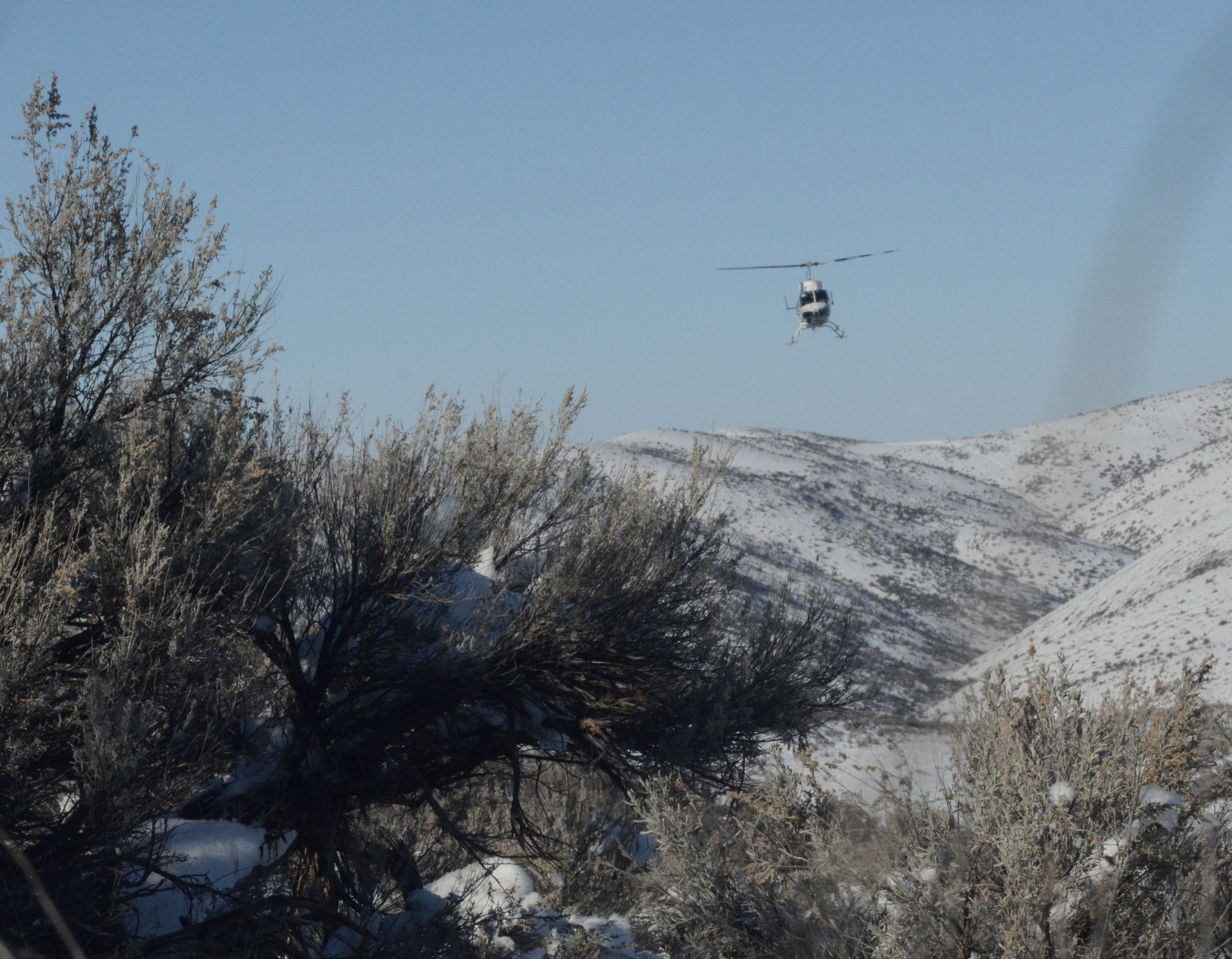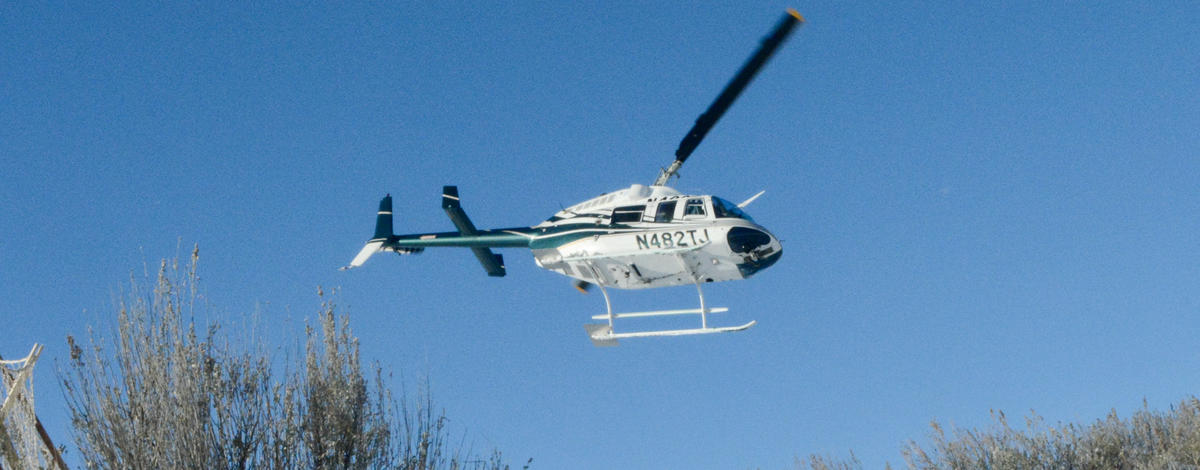Every winter, helicopters take to the sky to help Fish and Game biologists count and radio collar deer and elk. It provides valuable data that helps the big game managers monitor how animals are doing during winter and also count herds to learn if they are growing, shrinking or remaining steady over time. And each year, biologists get a valid question from the public: Doesn't that hurt the animals?

The short answer is no. Occasionally, animals can be injured during normal operations while they're being netted and fixed with radio collars, but it's fairly rare considering the number of animals that are captured each winter.
Another concern often raised is whether flying helicopters over wintering deer and elk stresses animal enough that they're less likely to survive winter. The short answer again is no, or as Magic Valley Regional Supervisor Craig White puts it: "One day at the gym doesn't make you slim."
Deer and elk are capable of short, intense bursts of activity, which is how they typically evade predators. The brief encounter they have with helicopters, which is typically less than half an hour, is not going to unduly stress them or burn excessive calories any more than an afternoon at the gym is going to burn away all your extra holiday pounds.
A much greater threat to wintering big game, especially young animals trying to survive their first winter, is when people repeatedly disturb them throughout winter and cause them to move, which depletes fat reserves, potentially leading to increased mortality. But a capture or fly-over survey is a one-time event.
Healthy deer and elk carry adequate fat reserves to help get through a normal Idaho winter. People can also rest assured that if it's an abnormally harsh winter, Fish and Game staff are prepared to feed deer and elk during emergency situations, but that decision isn't taken lightly or on a whim.
Fish and Game has winter feeding advisory committees in most regions except the Panhandle and Clearwater, where emergency feeding rarely occurs. These committees pay close attention to weather factors, such as extremely deep snow, extremely cold temperatures, heavily crusted snow, and others. They also watch for herds that are causing problems by congregating on agriculture lands and damaging stored crops or or near highways and towns and creating safety hazards to motorists.
To learn more, see how you can do your part to protect wintering wildlife.

